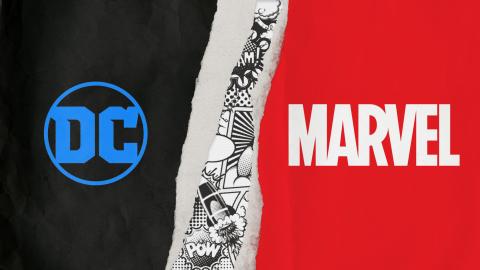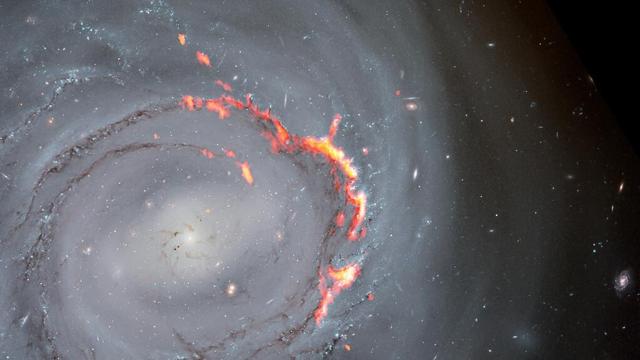The Suicide Squad: why is Marvel excellent but DC is not?

Credit: yayasya via Adobe Stock
- Though art leaves a lot of room for subjectivity, there are markers of excellence.
- For a comic universe, excellence requires consistency, proper tone, and creativity.
- When compared against these standards, Marvel excels and DC does not.
The world is full of great mysteries, questions that remain unanswered even after thousands of years of scrutiny. Some questions revolve around the nature of time or the structure of space. Others hinge on the meaning of life itself. Today I want to address one of these deep questions that has haunted me for years:
Compared to the Marvel Cinematic Universe, why are movies from the DC universe of comics so terrible?
Really folks, what gives?
Now before we begin, I have a couple of reveals for the sake of truth in publishing. First, I have been a Marvel Comics fan since I was nine, so I do come to all this with some bias. The second reveal is that I was the science consultant for Doctor Strange — so I did, once, get a check from Marvel. (I would have done it for free, but don’t tell them that.) I will, however, note that despite my bias, I do love science fiction, comics, and other related stuff so much that I am happy when anything, from any source, shows any degree of excellence. So, yes, The Dark Knight was one of the greatest superhero movies ever.
The excellence of Marvel
With that out of the way, let’s define the problem. Back in 2008, Marvel Studios launched with the film Iron Man. The movie was a huge hit allowing Marvel to begin constructing its “cinematic universe,” which meant that separate films were so tightly linked that they essentially form one coherent story. You do not need me to tell you how successful the Marvel Cinematic Universe has been: we are talking tens of billions of dollars in ticket sales. Instead, what I want to argue here — specifically, in comparison to DC films — is how Marvel movies have been successful way beyond money: they are, for the most part, excellent films.
What do I mean by excellence? In science, it is easy to see when something is excellent because it is about getting the answer right. But in art how can you tell? Is it not just a matter of taste?
Well, not entirely.
There is a lot to be said in those arts associated with storytelling about form and tone and consistency. For hard-core science fiction fans like me, for example, what matters is how writers or directors create the universe their stories live in. Do they create interesting rules like the maximum speed of their spaceships? Do they keep those rules consistent as we go from one story (or movie) to another? What has allowed the Marvel Cinematic Universe to embody excellence is a commitment both to consistency and experimentation. The films all live in a universe with rules that do not change (but new ones, like magic in Doctor Strange, can be added). In addition, the tone of Marvel movies is a balance of humor and seriousness.
The Bizarro World of DC
By these standards, the DC movies do not achieve excellence. DC’s attempt to create its own version of what Marvel has done has led, at best, to some films that have been okay while many have been epic stumbles.
Take, for example, The Justice League, which was supposed to be DC’s answer to Marvel’s The Avengers — that is, a big ensemble piece featuring many characters involved in an epic struggle for humanity’s survival. Marvel had to build its way up to The Avengers slowly, introducing most of the characters across many movies. DC tried to cram so many of them, along with their origin stories, into one film that the product was an unintelligible mess. The subsequent release of the four-hour “director’s cut” showed a better film but one that still lacked much humor or depth of character.
The original (and widely panned) The Suicide Squadfrom 2015 had similar problems. A long list of characters was introduced, and their stories were given so quickly that it was impossible to care much about any of them. And the film seemed to be created by committee rather than reflecting the vision of a single director.
Don’t commit suicide (squad)
This leads me to the final example and my reason for writing this post. Another version of The Suicide Squad was released a few weeks ago. This one had director James Gunn at the helm. Gunn was responsible for Guardians of the Galaxy, one of my favorite Marvel films. Guardians showed Marvel’s willingness to experiment with an individual director who created a different kind of superhero movie that did not take itself very seriously.
Gunn’s version of the The Suicide Squad is a massive improvement over the first. It is also much better than many DC Universe films. Still, for me at least, it missed the mark of excellence by a wide margin. In this case, the problem was not consistency but tone. While The Suicide Squad has Gunn’s characteristic humor, it also involves some intense body horror with people literally being ripped in half. At one point in the film, the Squad infiltrates a rebel military base and proceeds to kill everyone in pretty explicit ways only to find out that these rebels were actually their allies.
“Whoops. Sorry everyone! LOL.”
It was a jarring contrast. How could DC take a clearly talented director, give him freedom, and still somehow end up with something so flawed?
The Suicide Squad really left me thinking about what, exactly, is the magic ingredient that allows excellence to emerge? Why do some creative endeavors rise to the level of excellence, while others only make it above mediocrity (or worse, just fail)? The real point here is that creativity, in art or science, is so central to what makes us human that when it distills into excellence, it is always a mystery.





